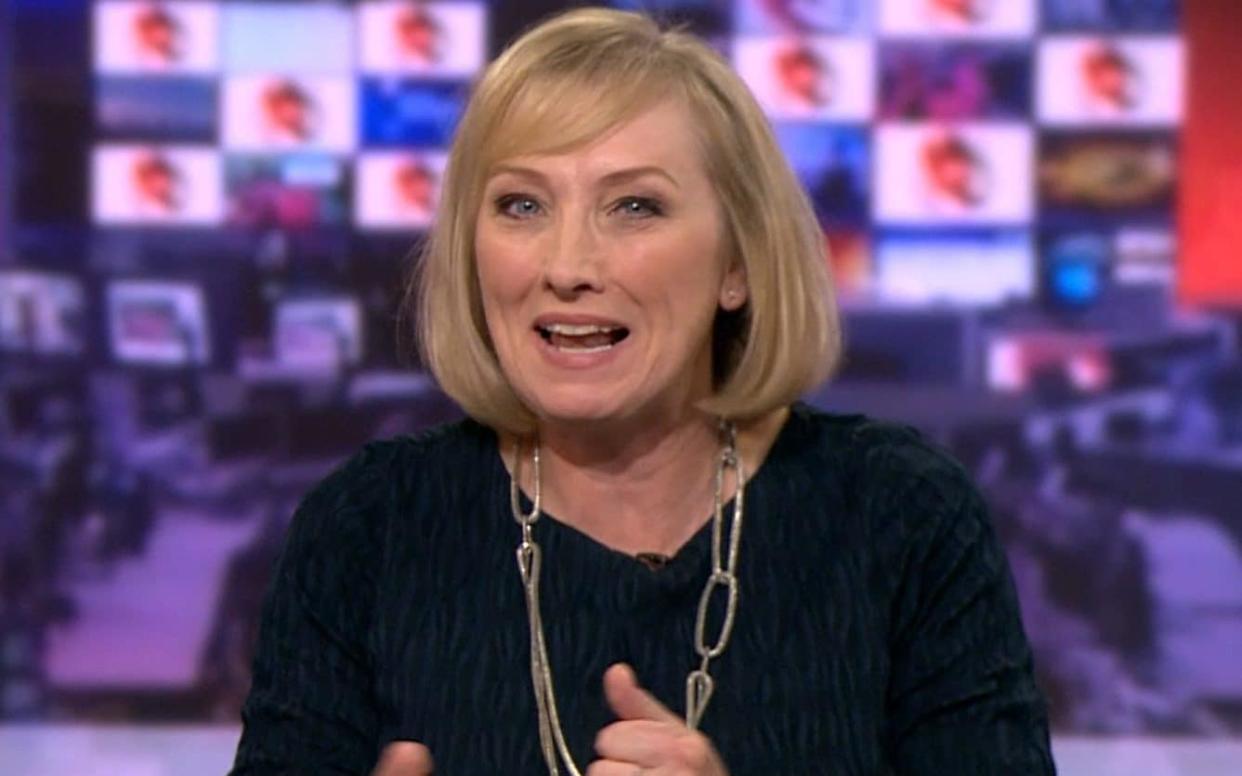BBC anchor who reacted ‘gleefully’ to Boris Johnson quitting Tory race sues for discrimination

Martine Croxall, the BBC news anchor, is suing the corporation for age and sex discrimination after spending nearly a year off air.
The 55-year-old, previously taken off air after reacting “gleefully” to news that Boris Johnson had pulled out of the Tory leadership race in 2022, last presented on the BBC News channel in March last year.
Croxall and other colleagues were told to reapply for a small pool of chief presenter roles after it was announced last year that the corporation’s home and world news channels would be merged.
She was one of five female presenters, all in their late 40s or 50s, who missed out. They were left without roles but remained on full pay.
The others were Geeta Guru-Murthy, Annita McVeigh, Kasia Madera and Karin Giannone. Guru-Murthy and McVeigh recently returned to work after other vacancies opened up.
Croxall’s case is listed at a central London employment tribunal on May 1, where she is suing for age discrimination, sex discrimination and equal pay.
It will be the highest-profile BBC tribunal since Samira Ahmed successfully sued the corporation over gender pay in 2020.
The presenters chosen for the chief presenter roles were two men, Matthew Amroliwala and Christian Fraser, and three women, Yalda Hakim, 40, Maryam Moshiri, 46, and Lucy Hockings, 49. Hakim has since moved to Sky News.

When the merger was announced, 18 presenters were required to apply for the five roles. Some, including Joanna Gosling, quit rather than face the “humiliating” process.
According to Deadline, the five women who lost out challenged the BBC’s recruitment process via an internal complaints procedure, alleging that the broadcaster already had a preferred list of presenters in mind.
The BBC said the chief presenters were recruited “via a competitive interview process in accordance with BBC HR procedures”.
Tim Davie, the BBC director general, told a parliamentary select committee last month that the corporation was working towards a “fair resolution” for the women.
“It is not a good situation where you are paying people [who are off air], and we are trying to get it resolved as fast as possible. I recognise that it has been going on for some time,” he said.
Paul Royall, the head of the BBC News channel, was asked at a recent Media Society event how paying the women to be “on the bench” represented value for money for licence fee payers. He said that, for any business, there was “a transition phase, a transition cost that has to be part of the wider project”.
The BBC declined to comment.

 Yahoo News
Yahoo News 
